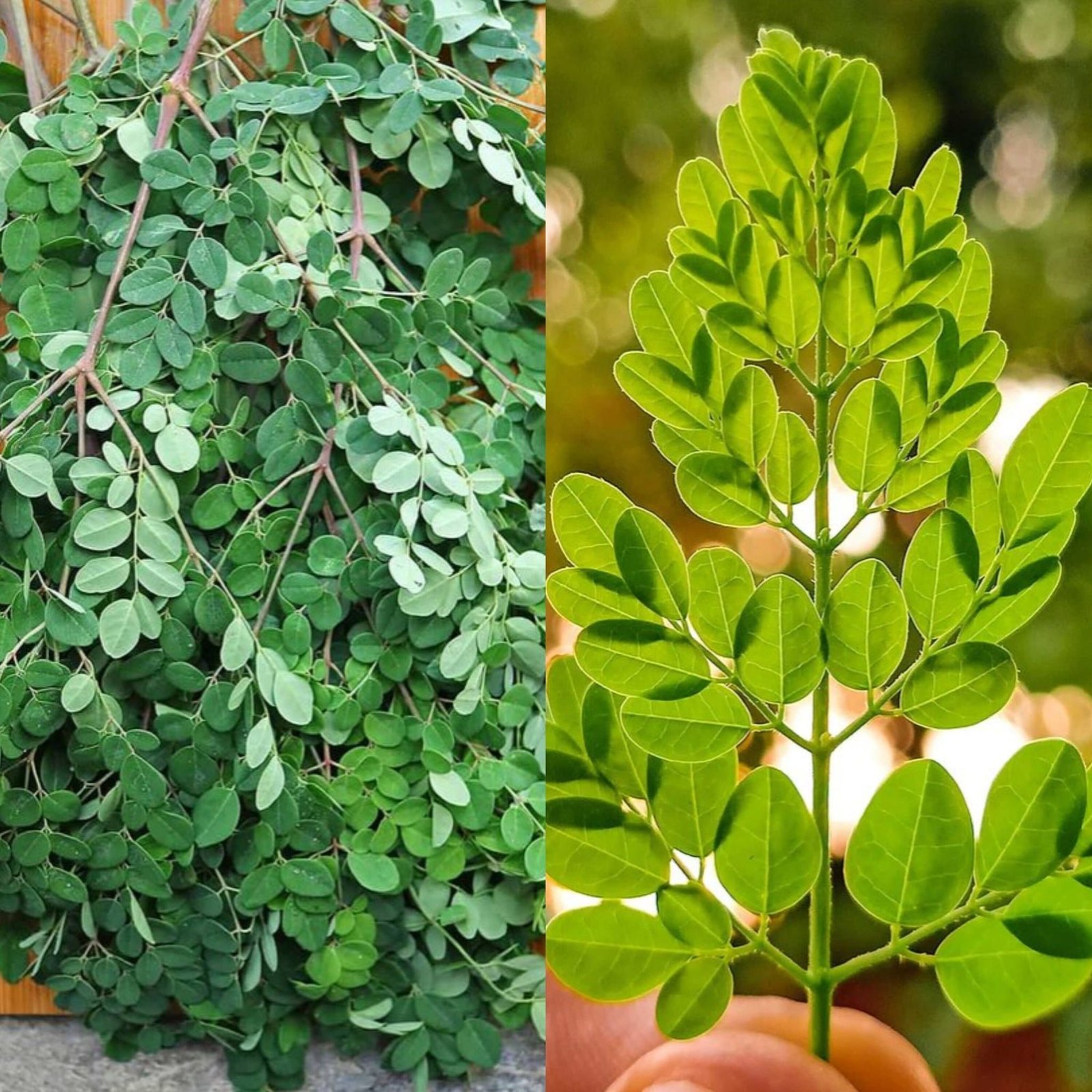Known for its high nutritional content, moringa—also called the “drumstick tree” or “miracle tree”—has long been used in traditional medicine. Each and every component of the Moringa tree—leaves, seeds, bark, and roots—offers a unique health advantage. An examination of the many advantages that Moringa provides is as follows:
Profile of Nutrition
Packed with Minerals and Vitamins: Moringa leaves are rich in calcium, potassium, protein, and vitamins A, C, and E. You may get a large portion of your daily intake for these vital elements with only a few tablespoons of the powder made from the leaves.
High Antioxidant Content: Beta-carotene, quercetin, and chlorogenic acid are just a few of the antioxidants found in moringa that help the body fight free radicals. These antioxidants may help decrease blood pressure, improve general health, and shield cells from harm.
Health Benefits: The anti-inflammatory qualities of moringa are a result of its isothiocyanates. This may help lessen inflammation in the body’s cells and be helpful in treating ailments like arthritis.
Promotes Brain wellness: Moringa’s potent antioxidant and neuroenhancer properties may help to improve cognitive function and mental wellness. It has been used into conventional therapy for mental health conditions including anxiety and depression.
Balances Blood Sugar Levels: A number of studies have shown that moringa leaves may have the ability to reduce blood sugar, which makes them an advantageous supplement for diabetics.
Protects the Cardiovascular System: Research has shown that the potent antioxidants in moringa may keep blood lipid and cholesterol levels under control, which can help avoid cardiac damage.
Enhances Wound Healing: Because moringa extracts have blood-clotting qualities, they may help shorten the time it takes for wounds to shut and heal.
Antimicrobial and Detoxifying Effects: Salmonella, Rhizopus, and E. coli infections may be effectively combated by moringa due to its antimicrobial and antibacterial qualities. Its capacity to filter water by absorbing pollutants and enhancing its purity accounts for its detoxifying effect.
Uses for Supplements and Diet
Dietary Supplement: Moringa comes in a variety of forms, such as teas, powders, and capsules. To add even more nutrition to soups, salads, and smoothies, add its leaf powder.
Cooking: Moringa leaves are used as a herb or used fresh, similar to spinach, in various regions of the globe to season food.
Taking into Account
Pregnancy: Because the roots and bark of moringa may cause contractions, pregnant women should see a doctor before ingesting the plant, particularly in excessive doses.
Interaction with Medication: Because moringa may have an impact on liver enzyme activity, which may disrupt drug metabolism, you should speak with a healthcare professional if you take any medications, especially ones that the liver processes.

